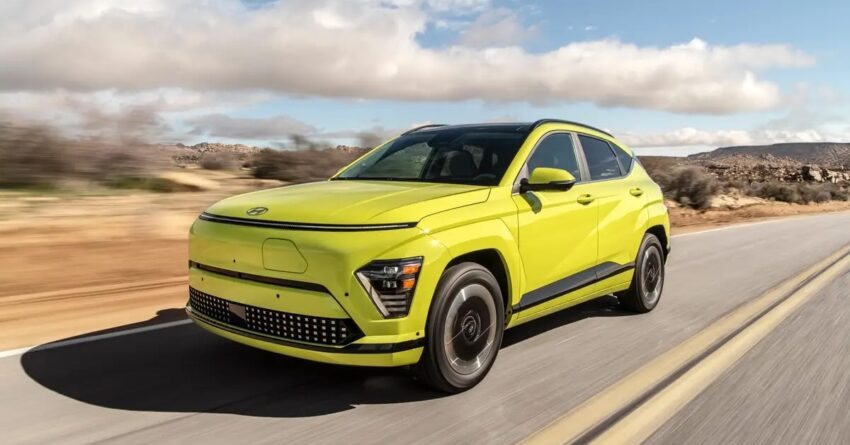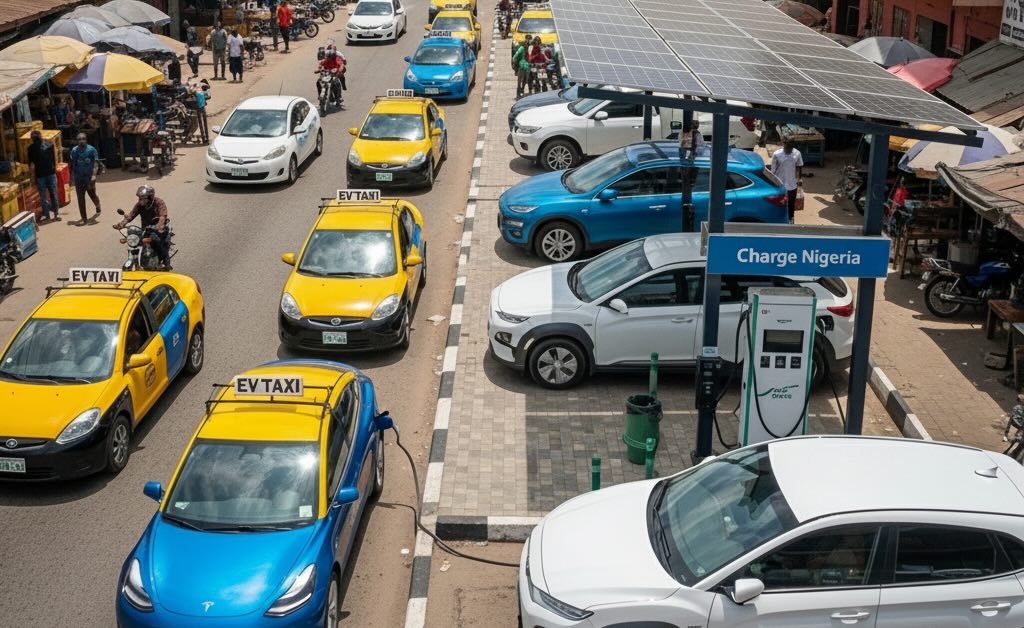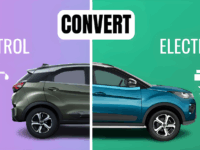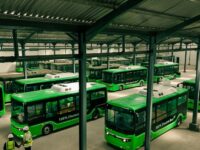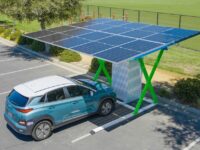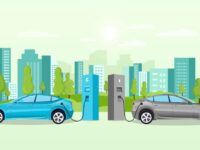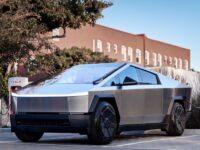As Nigeria pushes towards a greener future amid rising fuel costs and environmental concerns, electric vehicles (EVs) are gaining traction. With improving charging infrastructure in cities like Lagos and Abuja, and government incentives for local assembly, EVs offer lower running costs—often just a fraction of petrol expenses—and reduced emissions. However, Nigerian roads present unique challenges: potholes, uneven surfaces, flooding, and limited rural charging stations. That’s why we’ve curated this list of 10 budget-friendly EVs, focusing on models with decent ground clearance, reliable range for city and inter-state travel, and prices under ₦80 million to keep them accessible. These picks, many assembled or imported through brands like SAGLEV and BYD, balance affordability, performance, and suitability for our roads. Prices are approximate based on current market data and may vary by dealer.
1. Wuling Bingo
The Wuling Bingo is a compact city EV that’s perfect for navigating Lagos traffic without breaking the bank. This small hatchback emphasizes efficiency and ease of use, making it ideal for daily commutes or short errands. With its lightweight design, it handles urban potholes better than heavier SUVs, though it’s not built for off-road adventures.
Key Specs:
- Battery: Around 30-40 kWh (depending on variant)
- Range: Up to 333 km on a full charge, sufficient for Lagos to Ibadan trips
- Power: 50-70 kW motor for zippy city acceleration
- Price: ₦40 million
Pros: Super affordable entry point into EVs; compact size for easy parking; low maintenance costs. It’s refined and well-equipped for its class, with modern features like touchscreen infotainment.
Cons: Limited range for long highways; basic interior might not appeal to luxury seekers; charging time around 7-8 hours on home AC.
Recommendation: Great starter EV for young professionals in urban areas. Pair it with a home charger for best results on Nigerian roads.
2. BYD Atto 3
BYD’s Atto 3 is a crossover SUV that’s making waves in Nigeria with its blend of style, space, and tech. Launched locally in 2025, it’s designed for families needing more room, with a robust build that can tackle mild rough roads. Its blade battery tech ensures safety and longevity, crucial in hot climates.
Key Specs:
- Battery: 60.5 kWh
- Range: 420 km, ideal for Lagos to Abuja with stops
- Power: 150 kW motor (0-100 km/h in 7.3 seconds)
- Price: ₦30-35 million (estimated based on market trends)
Pros: Impressive range and fast charging (30-80% in under 30 minutes DC); spacious interior with premium features like rotating touchscreen; good ground clearance for potholes. It’s part of BYD’s affordable lineup in Nigeria.
Cons: Higher price than smaller hatches; software might need updates for local navigation; limited service centers outside major cities.
Recommendation: Best for mid-sized families. Opt for the higher-trim for advanced driver assists, making it safer on busy Nigerian highways.
3. BYD Dolphin
The Dolphin is BYD’s compact hatchback sibling to the Atto 3, offering a fun, agile drive in a smaller package. It’s budget-oriented and efficient, with a focus on urban mobility—perfect for dodging Lagos go-slows while sipping electricity.
Key Specs:
- Battery: 44.9 kWh
- Range: 340-350 km
- Power: 70-130 kW variants
- Price: ₦22-25 million
Pros: Excellent value with solid range for city use; quick acceleration; includes home charger in packages. Spacious for its size and handles Nigerian heat well.
Cons: Shorter range than SUVs; basic suspension might feel bumps; fewer luxury features.
Recommendation: Ideal for singles or small families on a tight budget. It’s a top seller in Nigeria’s emerging EV market for its reliability.
4. Dongfeng Nammi 01
Dongfeng Nammi 01 is a mini SUV from Dongfeng is a hidden gem for budget buyers, offering surprising space and features at a low price. Assembled under SAGLEV in Nigeria, it’s tailored for affordability and efficiency on local roads.
Key Specs:
- Battery: 42 kWh
- Range: 330 km
- Power: Around 70 kW
- Price: ₦38-42 million
Pros: Compact yet roomy; good features for the price; efficient for daily drives. It’s a perfect cheap EV with lots of space.
Cons: Slower acceleration; basic build quality; limited top speed for highways.
Recommendation: Suited for city commuters who want SUV styling without the premium cost. Great for Nigerian families starting with EVs.
5. Aeolus Sky 1
Another Dongfeng offering via SAGLEV, the Aeolus Sky 1 is a midsize SUV with a focus on comfort and range. It’s built for Nigerian conditions, with higher ground clearance to handle floods and rough patches.
Key Specs:
- Battery: 50.59 kWh
- Range: 440-530 km
- Power: 120 kW
- Price: ₦48-50 million
Pros: Spacious, tech-savvy interior; quiet and powerful drive; good for long commutes. Fast home charging in under 7 hours.
Cons: Heavier weight affects efficiency; higher price in the budget segment; parts availability improving.
Recommendation: For those needing a reliable daily driver with extra range for inter-city travel. It’s a SAGLEV favorite in Nigeria.
6. Dongfeng Yipai 008
The Yipai 008 is a larger station wagon-style EV, ideal for families or small businesses. With its extended range and premium touches, it’s a step up in comfort while staying budget-friendly.
Key Specs:
- Battery: 82.28 kWh
- Range: 636 km
- Power: 200 kW (340 Nm torque)
- Price: ₦42-45 million (estimated)
Pros: Exceptional range for long Nigerian trips; fast charging; luxurious interior. Smooth acceleration and quiet ride.
Cons: Larger size harder to park in cities; might be overkill for short commutes; newer model with limited reviews.
Recommendation: Perfect for road trips or cargo needs. Choose it if range anxiety is your main concern on Nigerian highways.
7. Hyundai Kona Electric
Locally assembled in Nigeria since 2020, the Kona Electric is a compact crossover with proven reliability. It’s nimble on city streets and handles rough roads decently, thanks to its suspension tuning.
Key Specs:
- Battery: 48.4-64 kWh
- Range: 350-420 km
- Power: 100-150 kW
- Price: ₦18-28 million
Pros: Affordable and locally supported; good acceleration; roomy for an SUV. Impressive driving range for its class.
Cons: Smaller battery in base models limits range; charging infrastructure dependent; basic compared to Chinese rivals.
Recommendation: A safe bet for first-time EV owners, especially with Hyundai’s warranty. It’s one of the best for Nigerian assembly quality.
8. Voyah Passion
As a luxury-leaning sedan from Dongfeng’s Voyah brand, assembled in Lagos, the Passion offers premium features at a mid-budget price. It’s sleek for highways but sturdy enough for urban challenges.
Key Specs:
- Battery: 82-109 kWh (variants)
- Range: 560-680 km
- Power: Up to 390 kW (PHEV hybrid option available)
- Price: ₦75 million
Pros: Long range and powerful performance; aerodynamic design; assembled locally for better support. Excellent noise control and smoothness.
Cons: Higher price point; fuel hybrid variant if pure EV unavailable; limited to major cities for servicing.
Recommendation: For executives wanting luxury without Tesla prices. Its range makes it ideal for cross-country drives in Nigeria.
9. Dongfeng Yipai 007
This sedan from SAGLEV’s lineup is efficient and quick, with a focus on value. It’s great for professionals needing a reliable commuter that performs well on varied roads.
Key Specs:
- Battery: Around 56 kWh
- Range: 539 km
- Power: 160 kW (0-100 km/h in 6.8 seconds)
- Price: ₦58-60 million
Pros: Low electricity consumption (11.9 kWh/100 km); fast acceleration; warranty-backed reliability. Covers long distances like Lagos to Enugu affordably.
Cons: Sedan body lower ground clearance; interior space average; software updates needed.
Recommendation: Strong choice for efficiency-focused drivers. It’s a top performer in Nigeria’s affordable EV segment.
10. Aeolus E70
The Aeolus E70 is a practical sedan with solid specs for budget buyers. Assembled locally, it’s durable and offers good value for money on Nigerian roads.
Key Specs:
- Battery: 52.99 kWh
- Range: 412 km
- Power: 110 kW
- Price: ₦45 million (market variants up to ₦84 million for premium)
Pros: Spacious and family-friendly; fast DC charging (30-80% in 30 minutes); reliable for daily use. Good curb weight for stability.
Cons: Older design; higher-end prices creep up; basic features in base trim.
Recommendation: For those prioritizing range and space over flash. It’s a SAGLEV staple for Nigerian EV adopters.
Best Picks by Budget
- Most Affordable: BYD Dolphin, delivers decent range at the lowest estimated price.
- Best Range for Price: Hyundai Kona Electric—reliability, range, and local support make it a standout.
- Stylish & Modern: BYD Atto 3 balances design, tech, and performance.
-
Luxurious Reach: Voyah Passion offers top-tier range and refinement, though at a higher investment.
Final Thoughts
In conclusion, these EVs represent the best budget options for Nigeria in 2025, with local assembly boosting affordability and parts availability. Start with models like the BYD Dolphin or Hyundai Kona if you’re new to EVs, or go for Dongfeng options for value. Consider your daily mileage, access to charging (home setups cost ₦500,000-1 million), and road types. With fuel prices soaring, switching to EVs could save you millions annually—test drive one today!
